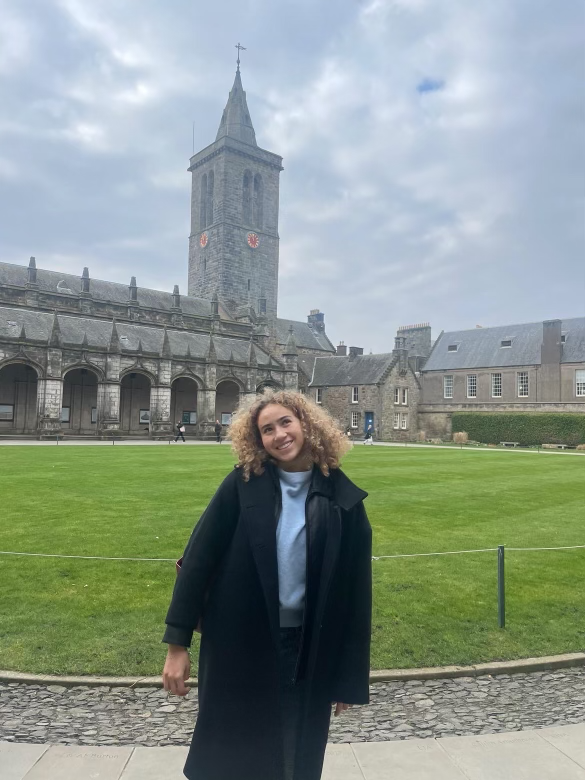Most students choose to attend college in the United States, surrounded by a comfortable familiarity. However, for those who choose to apply to college abroad, an exciting opportunity to cross borders, dive into a new culture and transform their lives awaits.
Sammie Floyd (‘22) attends the University of St. Andrews in Scotland and encourages others to apply to international colleges. “Do it,” she said. “I have had the best time ever, and I feel like I’m having such a unique experience than […] what people might get at a school in the U.S.”
Floyd knew she wanted to study in either New York City or abroad since she was a freshman. It was perhaps an unsurprising inclination, given that Floyd’s mother spent 15 years in Germany and shared insights about various schools abroad with her daughter. As Floyd approached her senior year, she decided to apply to St. Andrews.
Because St. Andrews accepts the U.S.’s Common Application, the application process required little additional work. However, Sydney Schirrmeister (‘23), who attends the University of British Columbia in Vancouver, Canada, needed to submit a separate application that required additional work on top of her applications for U.S. colleges.
“It was due, like, mid-January, […] a week or two later than all the other ones, but it was just a little bit more labor intensive,” she said.
Application processes abroad differ depending on the specific university. While some universities abroad accept the Common Application, many require the completion of an entirely different application process. Most universities in the United Kingdom use the University and Colleges Admissions Service, a platform with a separate application with additional essays, standardized tests and different deadlines.
Menlo college counselors advise students who are interested in applying abroad to check in with them early on in the application process. Discussing abroad universities with a counselor early on can help students navigate an unfamiliar application process.
Both Schirrmeister and Floyd have enjoyed their experiences attending school internationally and don’t regret their decision to study in a different country.
“I’m basically doing four years abroad, and you get to just meet people from all over,” Floyd said. “The connections and the networking that I’ve been able to do here at St. Andrews have given me opportunities that I genuinely don’t think I’d be able to get anywhere else.”
Schirrmeister feels that attending university abroad is the perfect time to broaden one’s perspective and experience a different culture. “I think it is an absolutely worthy endeavor,” Schirrmeister said.
According to the college counseling office, studying internationally provides a unique and varied experience beyond the traditional four-year American schools. Students can engage in a more global education with students all around the world and have an opportunity to participate in specific programs that schools in the U.S. may not offer.
While Schirrmeister acknowledges that studying abroad can appear disadvantageous to one’s career, she encourages students to look beyond a school’s international prestige and reputation.
While students in the Bay Area may be unaware of many international schools, that shouldn’t stop students from applying. “No one really knows the University of British Columbia, but it’s still in the top 45 universities in the world,” she said. “So just because Bay Area residents don’t know the school by name doesn’t mean it’s not a good school or not worth applying to.”
While breaking free from the comfort of one’s home country seems daunting, many students have found that the benefits have outweighed initial discomfort.









